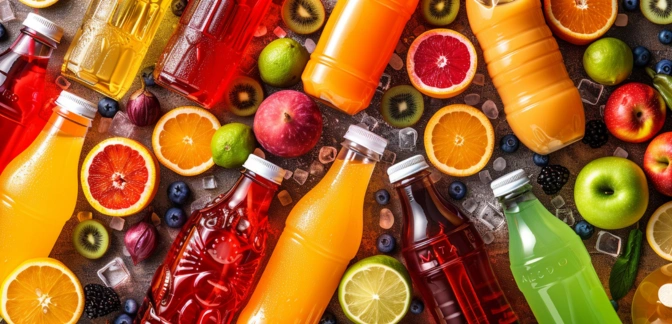Lemon Juice — Nutrients, Health Benefits, and Shopping Tips

Written by Listonic Team
Last update on September 4, 2024
Nutrition facts
Nutrition facts
Amount per 100 g
Calories
🔥 17 kcal
| Nutrition per: 100 g | Value | % Daily Value* |
|---|---|---|
| Carbs | 5 g | 1.82% |
| Fiber | 0 g | - |
| Sugars | 2 g | 4% |
| Glycemic Index | 20 | - |
| Protein | 0 g | - |
| Sodium | 1 mg | 0.04% |
| Total Fat | 0 g | - |
*The % of Daily Value (DV) tells you how much a nutrient in a serving of food contributes to a daily diet. 2,000 calories a day is used for general nutrition advice.
17
🍏 Low-Calorie Foods
20
🟢 Low Glycemic Index
Did you know?
Health benefits
- High in Vitamin C, which supports immune function, skin health, and overall well-being.
- Contains antioxidants such as flavonoids, which help protect the body from free radicals and reduce inflammation.
- Supports digestive health by stimulating the production of digestive enzymes and promoting healthy digestion.
- May support heart health by helping to lower cholesterol levels and blood pressure.
- Enhances flavor of foods and beverages, making them more enjoyable and palatable.
Health risks
- High acidity which can exacerbate symptoms of acid reflux, heartburn, or stomach discomfort in sensitive individuals.
- Potential for tooth enamel erosion due to the citric acid in lemon juice, which can weaken enamel over time if consumed frequently or in large quantities.
- Risk of allergic reactions in some individuals, particularly those allergic to citrus fruits, causing symptoms like itching, swelling, or difficulty breathing.
- Potential for digestive discomfort such as stomach upset or diarrhea when consumed in large quantities due to the acidity.
How to choose lemon juice
Quality lemon juice should be bright and clear, without any bitterness to the taste, indicating it was made from freshly squeezed lemons. The flavor should be sharply acidic, providing a punch of freshness that is essential for dressing salads or adding a vibrant note to drinks and dishes.
Avoid lemon juice that appears cloudy or tastes overly sweetened, as these characteristics often suggest the addition of preservatives or artificial flavors. High-quality lemon juice should maintain a balance of tartness and natural sweetness that makes it a versatile kitchen staple.

How to store lemon juice
Store fresh lemon juice in a tightly sealed container in the refrigerator. Use a glass or plastic container to avoid any metallic taste. Freshly squeezed lemon juice can last up to a week when refrigerated properly.
Avoid storing lemon juice in open containers or at room temperature, as it can quickly lose its freshness and potency. Do not freeze lemon juice in its original plastic bottle as it can expand and cause the bottle to crack. Instead, freeze lemon juice in ice cube trays for convenient portions.
✅ Extra Tip
How long does it last?
Lemon juice can last for 1-2 weeks in the refrigerator once opened. Unopened, it can last for 6-12 months when stored in a cool, dark place.
What to do with leftovers?
Leftover lemon juice can be used in a variety of culinary and household applications. Use it to make a vinaigrette for salads by mixing it with olive oil, salt, and pepper, or add it to marinades for chicken, fish, or vegetables. Lemon juice is also great in baking, where it can add brightness to cakes, cookies, or muffins.
Use lemon juice to brighten up soups, stews, or sauces, or mix it into a cocktail or mocktail for a refreshing twist. If you have a lot of lemon juice, consider making a batch of lemonade or using it in a lemon sorbet for a cooling dessert. Lemon juice can also be used as a natural cleaner for cutting boards, countertops, or faucets, thanks to its acidic properties. For a quick and refreshing drink, add lemon juice to water with a touch of honey or mint.
👨⚕️️ Medical disclaimer
How lemon juice supports specific health conditions
Lemon juice is rich in vitamin C, supporting immune health and promoting skin health by aiding collagen production. It aids in digestive health by stimulating digestive enzymes and improving nutrient absorption. Lemon juice is also a natural antioxidant that helps reduce inflammation and support heart health by lowering cholesterol levels. Its refreshing, low-calorie profile makes it an ideal addition to food and beverages for both flavor and health benefits.
Discover products from other categories
Listonic Team
Fact-checked
Our editorial team checked this article to make sure it was accurate at the time of publishing it.
Get the top-rated shopping list app on your phone!







